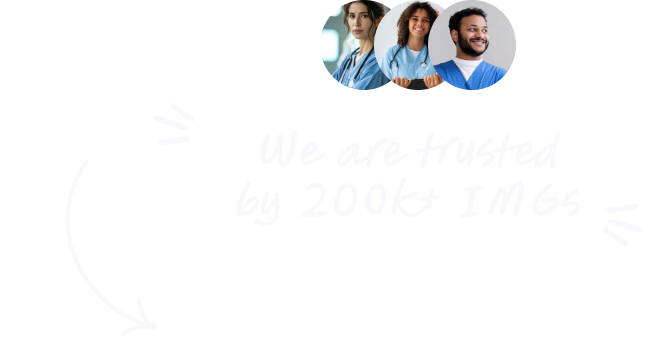Which documents may have weaknesses and how to avoid them
The Personal Statement
Your Personal Statement has the power to bring your entire residency application together. Currently, it is the most key document which brings you closest to residency Program Directors and Interview Committees.
However, the Personal Statement also has the ability to cause major damage to your application as well if it is underestimated or poorly written. There are any number of mistakes that can hurt your Personal Statement, just a few are:
- Generic Statement: Applying with one, generic Personal Statement communicates a lack of passion and interest in the specialty.
- Cliché or Lack of Originality: Program Directors and Interview Committees read through thousands of Personal Statements and see the same content repeatedly. Using the same tired anecdotes or motivations will not help you stand out from the crowd.
- Typos: Typos can be grammatical errors, misspelling or formatting issues.
Tips and Suggestions
- Details make the difference. Everyone has stories about patients, family members falling ill, and why they chose to pursue a certain specialty. Your life and your story is what will make you stand out from other residency candidates.
- Start early and revise often. Be sure to start as early as June to ensure you are creating quality Personal Statements. This gives you time to write, revise, scrap, walk away from and return to your Personal Statement.
- Professional help is available. Friends and mentors can make great editors, but professional help will bring your Personal Statement to the next level of writing. Residency Statement provides both editing and full statement writing services.
Residency Statement
The #1 Medical Residency Personal Statement provider. Offers Editing and full statement Writing.
Letters of Recommendation
Letters of Recommendation are yet another part of the application that can throw up red flags if not approached with care and dedication. Depending on your amount of clinical experience, it may be difficult to obtain the strongest Letters of Recommendation. Some examples of Letters of Recommendation red flags are:
- Waived vs. Unwaived: In general, residency applicants will want to have their Letter Writers submit the Letters of Recommendation for them. Regardless of your personal circumstances, unwaived letters tell programs you are not confident in the content of the letter.
- Late Letters: Anyone who has ever asked for a Letter of Recommendation knows it can be very difficult to obtain these letters on time. Doctors are busy people and may struggle to write quality letters in time to submit them before applications begin. However, applying with letters that arrive later run the risk of seeming disorganized.
- Generic: Much like Personal Statements, Letters of Recommendation should be specialty-specific whenever possible. Generic LoRs communicate a lack of passion in the field and a lack of effort.5
Strategies and Suggestions
- Ask early and have a conversation. Your Letter Writers will need time to write, so be sure to ask them early. Try to schedule a sit-down meeting to fully discuss your expectations and specialty choice.
- Provide reference materials and information. Bring your CV, Personal Statement, and any other materials you believe will help your Letter Writer. Offer to provide a summary of your time together, and use language you would want to see in the letter.
- Offer to walkthrough or guide the process. The Letter of Recommendation Portal (LORP) can be confusing, especially for doctors who are computer illiterate. Learn about the LORP and offer to walk your Letter Writers through the process if they need it.
MyERAS Common Application
Yet another component of the overall ERAS® Application that often gets overlooked is the MyERAS Common Application. Some red flags that can occur within the MyERAS Common Application are:
- Certifying too soon: The absolute, number one mistake any residency applicant can make is certifying their MyERAS Application before completion. Residency applicants can begin certifying their application once applying begins, but remember, after certification the application is set in stone.
- Errors, Typos or Incomplete sections: As with any of the written elements in the ERAS® Residency Application, you will want to proofread your MyERAS Application carefully. Note, there is no spellchecker, so you may want to consider copying and pasting your answers into another document that has a spellchecker.
- Dishonesty: It is important to only tell the truth in your MyERAS Application. Claiming you were the head author of a case study or article when you only helped a little can be easily caught and will look incredibly bad to Program Directors.
Strategies and Suggestions
- Make the document comprehensive. Unlike your Personal Statements and Letters of Recommendation, you only have one MyERAS Application. Unless you are only applying to one specialty, by sure to include all of your experiences, honors, societies, etc, for all medical specialties you’ve taken part in.
- Take advantage of the written sections. The written sections of the MyERAS Application, such as the Experiences and Hobbies sections, are great opportunities to expand upon any red flags that need explaining and to provide more diverse information.
- Take your time. Once ERAS® opens, you can take as long as you need to fill out the MyERAS Application. You do not have to tackle the whole document in one sitting. Instead, you can write a portion, stop, come back to it later, and finish it at your own speed. This gives you time to think and proofread plenty.

Residency Experts
Your Medical Residency Application Solution: Providing review, editing or feedback for the MyERAS Application, Personal Statements, and Letters of Recommendation for busy medical residency applicants.
- MyERAS Application Written Setion
- Personal Statement
- Letters of Recommendation
- Residency Document Editing
- Pricing
Missing Documents
-
For one reason or another, residency candidates may struggle to obtain a component of their ERAS® application.Typical examples of this are:
- The MSPE
- Transcripts
- Photograph
- PTAL (for CA Programs Only)
Regardless of your personal circumstances, incomplete residency applications communicate to residency programs that you are not willing to try and complete such an important part of the process.
Strategies and Suggestions
- Ask, then ask again. You cannot assume your medical school will automatically submit your documents. Be sure to ask your medical school if they will be submitting documents from their end.
- Get a placeholder. While it’s not ideal, if you are completely unable to get a hold of a document such as the MSPE or Medical School Transcript, you can contact ECFMG® and submit a placeholder document.
Smart residency program search
in one click.


